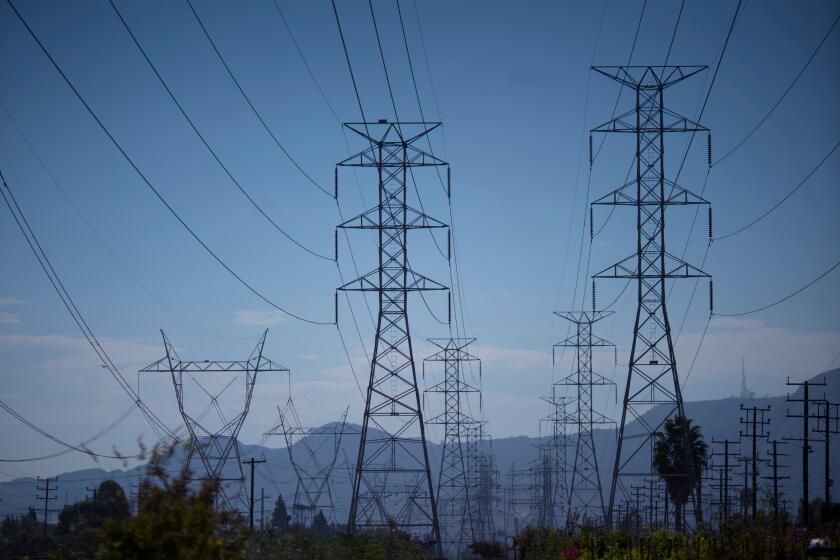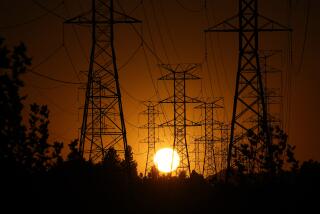California’s 9th straight Flex Alert was extended as smoke, clouds made solar power unpredictable

As an unprecedented heat wave continued to strain California’s power grid, officials issued a ninth straight Flex Alert on Thursday — this one extended two hours longer than the previous daily statewide announcements to limit energy consumption.
The latest Flex Alert began at 3 p.m. and will last till 10 p.m. because of changing conditions that power grid officials said could stunt solar energy supplies. The Flex Alert hours for the last eight days have been from 4 to 9 p.m., during which the state has narrowly avoided widespread rolling blackouts on multiple days.
“The principal reason we’ve extended [the alert is] largely due to some uncertainty about how much production we will have from our renewable resources, primarily the solar, during the heart of the afternoon,” said Elliot Mainzer, president and chief executive of the California Independent System Operator, which runs the state’s power grid.
Smoke and cloud cover in Northern California are expected to affect solar power supplies, Mainzer said. A wildfire burning west of Lake Tahoe was sending smoke billowing into the atmosphere.
By Thursday night, Cal ISO’s graph charting the grid’s supply of solar energy throughout the day — which ordinarily resembles a smooth bell curve during clear conditions — showed a series of peaks and valleys as the amount of solar power jumped up and down with passing cloud or smoke cover, making it more difficult for the grid operator to project net demand.
With temperatures remaining elevated across the state Thursday, the peak forecasted energy demand hovered just below 50,000 megawatts, where demand peaked Wednesday. On Tuesday, California set an all-time energy record, with peak demand at 52,061 megawatts.
The ISO also raised its Energy Emergency Alert to Level 2 until 9 p.m. Thursday, which means that “energy deficiencies are expected” and that the grid operator is requesting emergency energy from all resources.
Officials urged residents to charge devices and draw window shades to block sunlight.
Officials credit the emergency alert sent Tuesday night for the avoidance of widespread blackouts during record-setting energy demands.
During the seven hours of the Flex Alert, ISO officials asked consumers to set thermostats to 78 degrees or higher, unplug unused devices, turn off unnecessary lights and not use major appliances.
“This last week has been really very, very, very challenging, and I’ve just been so appreciative and so impressed with the way California electricity consumers have come together,” Mainzer said. “They’ve really rallied … and really helped us work through what has been an extraordinarily challenging time.”
Mainzer said that he’s hopeful the state is “close to turning the corner” on the record-setting heat wave, and that the stress on the power grid will soon be alleviated.
The National Weather Service has predicted most of the extreme heat warnings across the state will expire by Saturday.
More to Read
Sign up for Essential California
The most important California stories and recommendations in your inbox every morning.
You may occasionally receive promotional content from the Los Angeles Times.












